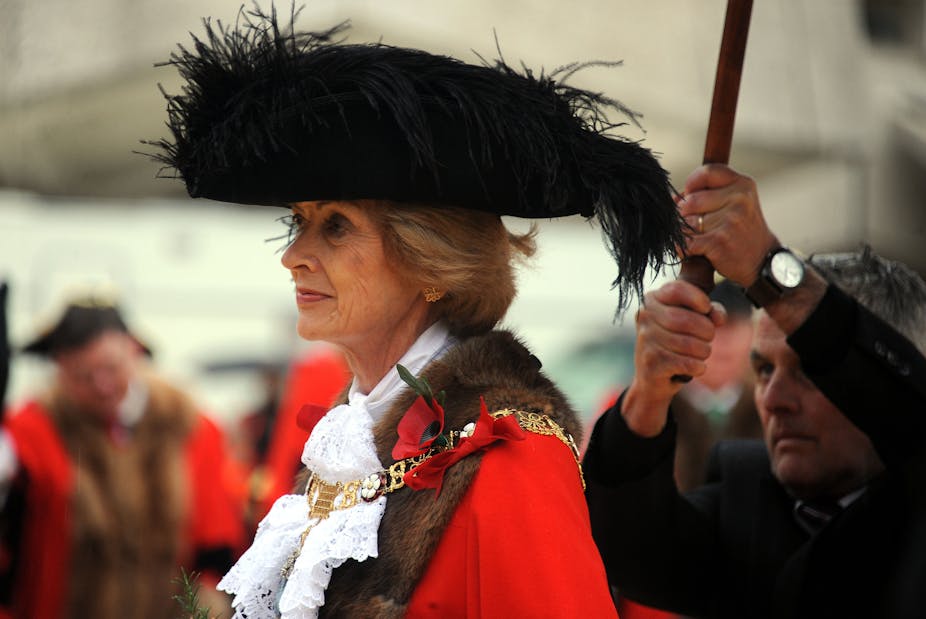As a second chairwoman resigns from the UK government’s inquiry into historic child abuse allegations, it’s clear that questions need to be asked about who should lead this investigation and what its remit ought to be.
Home secretary Theresa May has announced that a new leader will be sought to replace Lord Mayor Fiona Woolf, who has stepped down over accusations that she has too many ties to the people implicated in the investigation.
May has vowed to run any appointment by the survivors of child abuse that opposed Woolf as well as the MPs who grilled her before her resignation. But, speaking in the House of Commons, she said finding someone with enough gravitas who can clear their diary for what could be a very long haul, will be very difficult.
But a replacement must be found and it must be someone who can challenge people in high places. Woolf’s appointment and resignation has led to questions about whether the British establishment can be trusted to police itself.
May has now made it clear that the inquiry team will be given stronger powers to call witnesses if it asks for them but such important pragmatic considerations are coloured at all times by the fundamental suspicion that the rich and powerful will ultimately protect themselves when the chips are down.
Labour MP Tom Watson – the nearest the political class currently has to offer as an honest broker – has highlighted just how deep this problem runs. Having worked as an instrumental voice in the hacking scandal, he has moved on to pushing for information about what happened to a dossier implicating several high-profile people of child abuse. In 2012, Watson made an explosive statement in parliament:
The evidence file used to convict paedophile Peter Righton, if it still exists, contains clear intelligence of a widespread paedophile ring. One of its members boasts of his links to a senior aide of a former prime minister, who says he could smuggle indecent images of children from abroad. The leads were not followed up …
Righton was a child protection expert later revealed as a founder of the Paedophile Information Exchange. He was eventually exposed in 1992 as a child abuser but the police failed to investigate him convincingly. Public school and Oxbridge educated (like many in senior parliamentary roles in Britain) Righton died a free man in 2007, despite extensive evidence about him being party to organised child sexual exploitation.
In 2013, following Watson’s parliamentary intervention, the Metropolitan Police initiated Operation Fairbank to look at paedophile networks in Britain. To date, only Liberal MP Cyril Smith has been exposed – and only after his death. Others are likely to be named soon by the police but several names are already doing the rounds in the media – all deceased.
Two prominent politicians who are still alive have also been alluded to, including an as-yet unnamed former cabinet minister.
The easy life
As the names have emerged, so has evidence that upper-class paedophiles were escaping police interest and being harboured in aristocratic surroundings.
After his prosecution in 1992, Righton went to live on the ancestral estate of Lord Henniker at Eye in Suffolk. Henniker ran a local project that provided holidays for disadvantaged children but took no action when warned about the danger posed by Righton by the local police.
And the scandal at the heart of the government’s inquiry raises even more concern. MP Geoffrey Dickens said that he handed a dossier containing allegations of child abuse against famous people to the government but that dossier was subsequently lost. Leon Brittan was home secretary at the time and it seems baffling that he and his civil servants came to misplace a dossier of such importance.
Whatever the fate of the dossier, it is hardly surprising that abuse survivors and other critics were concerned about Woolf’s apparent personal connections with Brittan. This suspicion was predictably fuelled by more recent revelations that the Home Office had played a part in drafting and re-drafting Woolf’s defence of her impartiality as chairwoman of the inquiry.
Given the arcane world of social connections operating in the establishment, it is right to ask exactly how these allegations are to be dealt with. Having lost two leaders already, the long-term credibility of the group charged with investigating these crimes remains in doubt. Internal paralysis and external chronic scepticism have now become mutually reinforcing. And even if the circle is broken in this case, the establishment and its evident cronyism are still likely to remain the deeper malaise of our flawed modern democracy.

